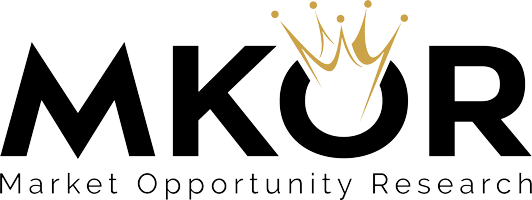Market research is the process by which a company gathers and analyzes information about consumers, competitors, and the business environment to better understand market needs and preferences.
With targeted market studies, you gain access to concrete data that supports the planning, development, and implementation of products and services.
But more than that, effective market research is a strategic asset—it uncovers growth opportunities, minimizes risks, and helps build lasting customer relationships.
An efficient research approach helps set optimal pricing, identify profitable market segments, and craft marketing strategies tailored to consumer needs.
Content
Agile Research – Your Fast, Accessible Solution for Real-Time Market Data
Traditional market research involves collecting data from primary sources (surveys, interviews, or focus groups) and analyzing it over months. But in today’s fast-paced world, this lengthy process can leave companies struggling to keep up with market changes.
Agile Research is the innovative, efficient alternative to traditional methods. Inspired by agile software development principles, it emphasizes flexibility, speed, and iteration. Instead of prolonged, costly studies, Agile Research delivers continuous, rapid, and adaptable data collection and analysis.
The main advantage? Agile Research provides critical insights in record time and at a fraction of the cost. This means actionable research is accessible even to smaller companies with limited budgets.
With Agile Research, you gain a deep understanding of your target market, learning:
- How do buyers make decisions
- What drives them to choose a particular product or service
- What prevents them from choosing a specific product or service
- What they think of your brand and competitors
- Their preferences and priorities
By reducing time and costs, Agile Research becomes a viable solution for businesses committed to staying competitive and relevant in their market.
Segmentation and Its Key Role in Agile Research
Agile Research places segmentation at the heart of its approach to delivering fast, relevant data.
With this innovative service, you can ask up to 7 targeted questions—and for even greater insights, receive demographic analysis based on 10 key questions.
Market segmentation (or consumer profiling) is the process of dividing a broad audience into smaller, homogeneous groups based on shared criteria, such as demographics, purchasing behaviors, or specific preferences.
Segmentation is essential for understanding each customer group’s unique needs and for developing tailored marketing strategies that resonate.
Based on their responses, we classify participants into segments with Low, Medium, or High Buying Potential.
We further analyze these segments across socio-demographic factors like age, income, education, and more, pinpointing precisely who is most likely (or least likely) to become your customer.
The Benefits of Segmentation for Identifying Your Target Audience and Validating Products and Services
Segmentation helps you pinpoint your exact target audience and validate the products or services you plan to bring to market.
By focusing on specific groups, you can personalize products and marketing messages to address their actual needs. Product and service validation becomes faster and more efficient, with insights coming directly from consumers who are genuinely relevant to your business.
To illustrate the importance of segmentation for any business, here’s an example from an MKOR study on the Tourism Market – Summer Vacation 2024: Habits and Preferences of Romanians.
One of the key questions asked was, “In general, what is the primary factor you consider when choosing a vacation destination?” The top choice, selected by 24% of respondents, was “tourism objectives.”
Based on population segmentation, the data revealed that “tourism objectives” were the primary criteria for the following groups:
- 44% Millennials (aged 28-43)
- 57% men
- 45% with medium income
- 63% with higher education
- 42% from Macroregion 2 (Northeast and Southeast)
- 84% living in urban areas
- 55% without children, although 62% are married or in partnerships
What’s the profile of a Romanian who chooses vacations based on tourism objectives? Picture a man aged 28-43, with higher education, medium income, married but without children, living in an urban area in Macroregion 2 (Northeast and Southeast). The message you’d craft for this profile would be completely different from one targeting a mother of similar age, education, and income.
See more results by browsing the vacation market research report.
Segmentation plays a crucial role in understanding consumer behavior, allowing you to pinpoint subtle differences among demographic groups—just like in the example above, where vacation choices varied based on tourism objectives.
Without proper segmentation, valuable insights into preferences for specific groups, such as Millennials or highly educated individuals, would remain hidden. This leads to broader, less efficient strategies.
By integrating segmentation into the Agile Research methodology, you gain more precise, relevant results tailored to your customer profiles.
Sign Up Now and Take Advantage of the Exclusive Agile Research Launch Offer!
Don’t miss out on accessing this fast, efficient, and accessible market research solution!
By joining our launch list today, you’ll automatically receive a promotional offer—an edge that allows you to gain relevant insights about your consumers in record time and at a competitive price.
Sign up today and stay one step ahead of your competition!
Have you read everything? Comment / join our newsletter / read our other research posts!
How to Boost Your Black Friday Sales with Agile Research: Quick, Data-Driven Decisions
November 2, 2024
0 Comments7 Minutes
Agile Research: The Key to Fast and Effective Product Validation
November 4, 2024
0 Comments13 Minutes
5 Secrets of Competitive Businesses: How Agile Research Gives You Access to Critical Data
September 10, 2024
0 Comments9 Minutes
How to Successfully Launch a New Product or Service with Agile Research
November 4, 2024
0 Comments10 Minutes
2024 Professional Guide to Market Research: Learn, Plan, and Succeed in Marketing (part 3/3)
January 29, 2024
0 Comments24 Minutes











